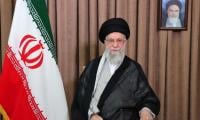Kashmir at the UNGA
In his first UNGA address of the year 2022, UN Secretary-General Antonio Guterres mentioned five urgent priorities for 2022. Calling it ‘five-alarm global fire’, he pointed out that the Covid-19 pandemic, the climate change crisis, the unequal and corrupt global financial system, lawlessness in cyberspace, and the rise in violent conflicts are the five burning issues that need to be addressed by member nations of the UN. He appealed to all member nations for mobilisation to find a solution to these issues on an urgent basis.
The UN secretary-general talked about the production of 1.5 billion doses of Covid-19 vaccines each month by various pharmaceutical companies and pointed out that these doses have not reached the citizens of poor and developing countries. He has advocated changing ‘vaccines into vaccination’ and ending the ‘travel apartheid’.
He called the global financial system ‘morally bankrupt’ as it favours the rich and is against the poor. Factors like record inflation, rising prices, forced migration, poor credit ratings, and other global inequalities were mentioned as proof of this claim. On inequalities among rich and developed nations and developing nations of Africa, Asia, and Latin America, he referred to lawlessness in the area of cyberspace and urged reforms on an urgent basis.
“Technology should not use us. We should use technology,” he added while talking about misinformation and manipulation. The UN secretary-general expressed that the “world is too small for so many hot spots” and then went on to mention conflicts in Ukraine, Libya, Afghanistan, Iran, Sudan, Syria, Yemen and Palestine. The address, however, had no reference to the Kashmir dispute even though the UN Security Council resolutions demand a solution to the issue between India and Pakistan. It is the moral and legal responsibility of the UN to implement its Security Council resolutions to meet its commitment and obligations to solve the dispute.
Having said that, his annual report and ‘five-alarm global fire’ alerts were welcome as they also reflected the inequalities that are experienced by developing nations. After his address, envoys of various countries, including Pakistan’s Ambassador Munir Akram, spoke at the UNGA. In his speech, he appreciated the UN-backed mobilisation of humanitarian aid and assistance appeals for Afghanistan, and Pakistan’s partnership in UN peacekeeping missions.
Ambassador Akram referred to the UN’s oldest peace-keeping mission across the line of control (LoC) in Kashmir – United Nations Military Observer Group in India and Pakistan (UNMOGIP) – and urged that the UN secretary-general could do much more under Article 99 of the UN Charter to address peace and security threats.
He argued that the UN General Assembly could even take action if the UN Security Council were unable to do so. He also highlighted India’s plan to change the demography of Occupied Kashmir. This infuriated the Indian mission which asked for the ‘right of reply’ to Pakistan. Contrary to the UN Security Council record and resolutions which are pending for implementation, the Indian diplomat claimed that Kashmir was an integral part of India, and even asked Pakistan to vacate Azad Kashmir. There is a long and interesting history of exercising the ‘right of reply’ at the UN between India and Pakistan. Kashmir and Palestine, the two oldest issues on the UN agenda, are still awaiting a solution.
UN Secretary-General Antonio Guterres has rightly pointed out the inequalities among rich and poor member nations, and in the global financial system. The structure of the UN Security Council has resulted in the inadvertent blocking of any fair and just solution to any dispute brought before the Security Council without the consent and approval of any one of these five permanent members.
In the case of the Kashmir dispute, the facts and principles support Kashmiris and Pakistan, but the occupier has been effectively and aggressively denying UN resolutions. Also, due to political instability and lack of effective diplomacy, along with fragmented leadership from Indian-occupied Kashmir, enough progress could not be made for the implementation of the resolutions even after 70 years.
Now, even in the presence of valid UN Security Council resolutions that regard Kashmir as a disputed territory, India publicly claims Kashmir as an integral part of the country.
The writer is a journalist based in the US.
-
 Kelly Osbourne's Mom Sharon Receives 'shut Up' Call Accepting An Award For Late Hubby?
Kelly Osbourne's Mom Sharon Receives 'shut Up' Call Accepting An Award For Late Hubby? -
 Claude Overtakes ChatGPT On Apple App Store After Pentagon Dispute
Claude Overtakes ChatGPT On Apple App Store After Pentagon Dispute -
 What Happened To Ayatollah Ali Khamenei's Family During US -Israel Attack On Iran
What Happened To Ayatollah Ali Khamenei's Family During US -Israel Attack On Iran -
 BRIT Awards 2026 Winners Revealed
BRIT Awards 2026 Winners Revealed -
 Shia LaBeouf Arrested Again In New Orleans On Additional Battery Charge
Shia LaBeouf Arrested Again In New Orleans On Additional Battery Charge -
 Shamed Andrew Upset With THIS Family Member Over Current Condition
Shamed Andrew Upset With THIS Family Member Over Current Condition -
 Michael Jackson Estate Sued With Allegations Of Years Of Abuse From Late Singer
Michael Jackson Estate Sued With Allegations Of Years Of Abuse From Late Singer -
 Meghan Markle Shows ‘real Pain’ With Her Body Language In Jordan
Meghan Markle Shows ‘real Pain’ With Her Body Language In Jordan -
 Jennifer Garner Names Her Movie That She Hasn't Seen In Full Since Its Premiere
Jennifer Garner Names Her Movie That She Hasn't Seen In Full Since Its Premiere -
 Bridgerton’s Michelle Mao On Facing Backlash As Season Four Antagonist
Bridgerton’s Michelle Mao On Facing Backlash As Season Four Antagonist -
 King Charles Gets New ‘secret Weapon’ After Andrew Messes Up
King Charles Gets New ‘secret Weapon’ After Andrew Messes Up -
 Shia LaBeouf Makes Bold Claim About Homosexuals In First Interview After Mardi Gras Arrest
Shia LaBeouf Makes Bold Claim About Homosexuals In First Interview After Mardi Gras Arrest -
 Princess Beatrice, Eugenie ‘strained’ As They Are ‘not Turning Back’ On Andrew
Princess Beatrice, Eugenie ‘strained’ As They Are ‘not Turning Back’ On Andrew -
 Benny Blanco Addresses ‘dirty Feet’ Backlash After Podcast Moment Sparks Online Frenzy
Benny Blanco Addresses ‘dirty Feet’ Backlash After Podcast Moment Sparks Online Frenzy -
 Sarah Ferguson Unusual Trait That Confused Royal Expert
Sarah Ferguson Unusual Trait That Confused Royal Expert -
 Prince William, Kate Middleton Left Sarah Ferguson Feeling 'worthless'
Prince William, Kate Middleton Left Sarah Ferguson Feeling 'worthless'



